
Bizerte: The Hidden Gem of Tunisia's North Coast
Bizerte, Tunisia's northernmost city, offers a delightful blend of Mediterranean charm and historical intrigue. Situated along the sparkling waters of the Mediterranean Sea, Bizerte is known for its picturesque old port, bustling markets, and beautiful sandy beaches. As the oldest city in Tunisia, Bizerte is rich in history, with roots that trace back to the Phoenicians. This history is evident in its diverse architecture, ranging from ancient forts to colonial-era buildings. One of Bizerte’s main attractions is the Old Port (Vieux Port), where colorful fishing boats and lively cafes create a vibrant atmosphere. Strolling along the harbor, you'll encounter local fishermen and vendors selling fresh seafood, fruits, and vegetables. Nearby, the Kasbah of Bizerte, with its narrow alleys and historic buildings, offers a glimpse into the city’s past. Don't miss the chance to visit the Great Mosque, a fine example of Islamic architecture. Nature lovers will appreciate Bizerte's beautiful coastal scenery. The Enfidha Beach, with its golden sands and clear waters, is perfect for sunbathing and swimming. For a more secluded experience, head to the Remel Beach, a pristine stretch of coastline surrounded by lush greenery. Additionally, the Ichkeul National Park, a UNESCO World Heritage site located just a short drive away, is home to diverse wildlife and offers excellent opportunities for bird watching. Bizerte also boasts a vibrant cultural scene. The Bizerte International Festival, held every summer, features a variety of performances, including music, dance, and theater. The city's museums, such as the Oceanographic Museum, provide fascinating insights into the region's maritime history. With its rich history, stunning landscapes, and warm hospitality, Bizerte is a destination that promises an unforgettable experience.
Local tips in Bizerte
- Visit the Old Port early in the morning to see the fishermen return with their catch.
- Wear comfortable shoes when exploring the Kasbah, as the streets are narrow and uneven.
- Enjoy fresh seafood at the local restaurants near the harbor for an authentic culinary experience.
- Pack sun protection and water when heading to the beaches, as shade can be scarce.
- Plan your visit to Ichkeul National Park during the migratory bird season for the best wildlife viewing.
Bizerte: The Hidden Gem of Tunisia's North Coast
Bizerte, Tunisia's northernmost city, offers a delightful blend of Mediterranean charm and historical intrigue. Situated along the sparkling waters of the Mediterranean Sea, Bizerte is known for its picturesque old port, bustling markets, and beautiful sandy beaches. As the oldest city in Tunisia, Bizerte is rich in history, with roots that trace back to the Phoenicians. This history is evident in its diverse architecture, ranging from ancient forts to colonial-era buildings. One of Bizerte’s main attractions is the Old Port (Vieux Port), where colorful fishing boats and lively cafes create a vibrant atmosphere. Strolling along the harbor, you'll encounter local fishermen and vendors selling fresh seafood, fruits, and vegetables. Nearby, the Kasbah of Bizerte, with its narrow alleys and historic buildings, offers a glimpse into the city’s past. Don't miss the chance to visit the Great Mosque, a fine example of Islamic architecture. Nature lovers will appreciate Bizerte's beautiful coastal scenery. The Enfidha Beach, with its golden sands and clear waters, is perfect for sunbathing and swimming. For a more secluded experience, head to the Remel Beach, a pristine stretch of coastline surrounded by lush greenery. Additionally, the Ichkeul National Park, a UNESCO World Heritage site located just a short drive away, is home to diverse wildlife and offers excellent opportunities for bird watching. Bizerte also boasts a vibrant cultural scene. The Bizerte International Festival, held every summer, features a variety of performances, including music, dance, and theater. The city's museums, such as the Oceanographic Museum, provide fascinating insights into the region's maritime history. With its rich history, stunning landscapes, and warm hospitality, Bizerte is a destination that promises an unforgettable experience.
When is the best time to go to Bizerte?
Iconic landmarks you can’t miss
Cap Angela: Northern Tip Of Africa
Explore Cap Angela, the northernmost tip of Africa, where breathtaking coastal views meet rich history in a serene Tunisian landscape.
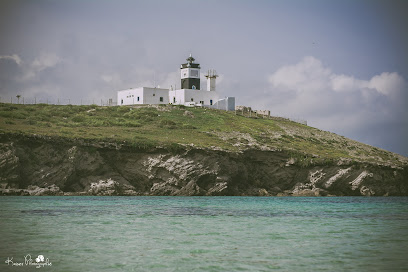
Vieux Port De Bizerte
Explore the enchanting Vieux Port De Bizerte, a marina where history meets vibrant coastal life, perfect for leisurely strolls and unforgettable experiences.
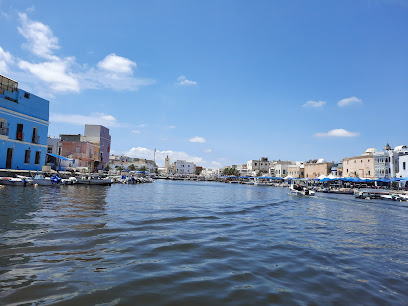
ملاهي علاء الدين
Explore Mlahy Alaa El-Din Amusement Park in Bizerte for a delightful mix of thrilling rides, children's fun, and delicious dining options.
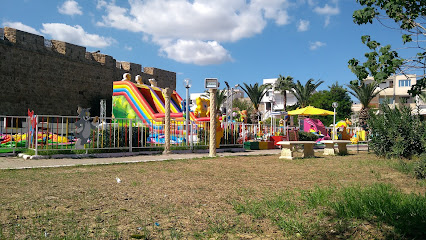
Vieux Port
Explore the enchanting Vieux Port in Bizerte, Tunisia, a vibrant waterfront blending history, culture, and exquisite Mediterranean cuisine.
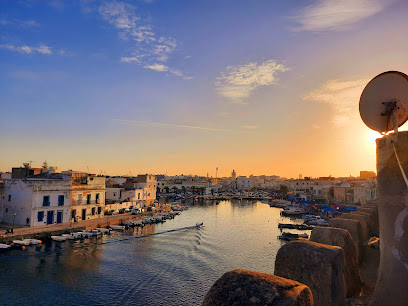
Di Napoli Corniche
Experience the authentic taste of Italy at Di Napoli Corniche in Bizerte, where delectable pizzas meet stunning Mediterranean views.
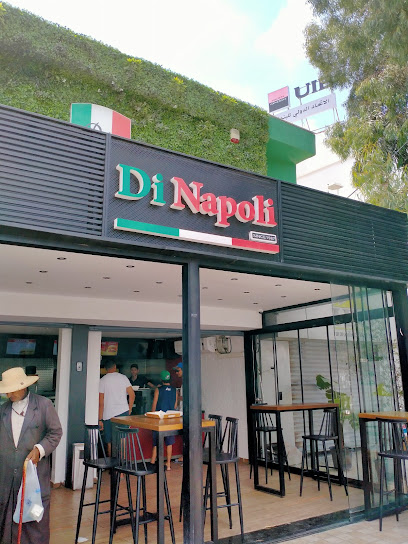
Open-air theater in Bizerte
Explore the ancient Amphithéâtre de 7000 le fort de l'Andalous in Bizerte, where history and culture intertwine in a breathtaking Mediterranean setting.
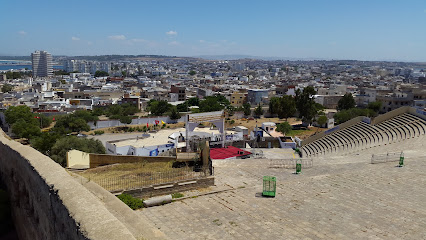
Oceanographic Museum
Explore the captivating marine world at Bizerte's Oceanographic Museum, a hub of oceanic knowledge and fascinating exhibits for nature enthusiasts.
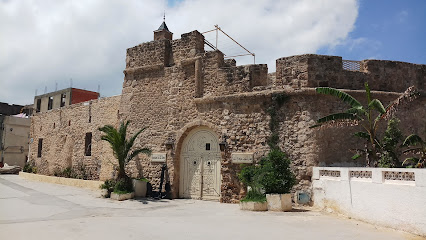
Remel Beach
Experience the tranquil beauty of Remel Beach in Tunisia, where golden sands meet azure waters, perfect for relaxation and adventure.
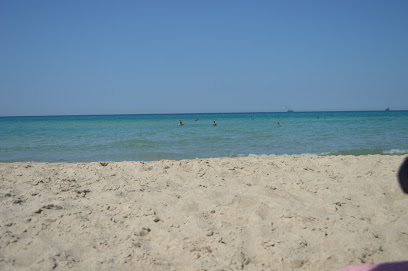
Medina of Bizerte
Discover the enchanting Medina of Bizerte, a historical landmark rich in culture, architecture, and vibrant local life, perfect for every traveler.
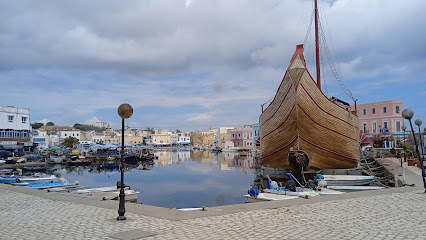
Russian Ultra-Orthodox Church
Discover the unique architectural beauty and serene atmosphere of the Russian Ultra-Orthodox Church in Bizerte, a must-visit historical landmark.
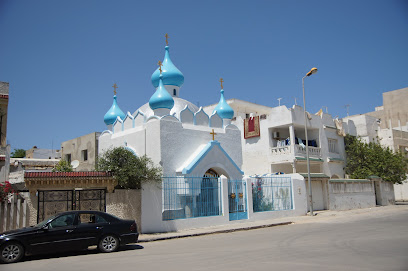
Bizerte Old Harbor
Experience the enchanting Bizerte Old Harbor, where history meets vibrant culture along Tunisia's stunning coastline.
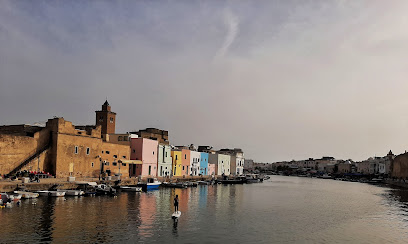
Aljezia Hammam & SPA (Ayadi)
Discover relaxation at Aljezia Hammam & SPA (Ayadi) in Bizerte, where traditional Tunisian wellness rituals meet modern spa luxury for a rejuvenating experience.
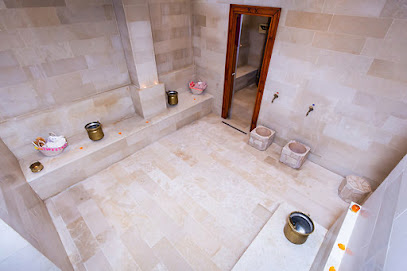
Dar El Kasba Bizerte
Experience the essence of Tunisian hospitality at Dar El Kasba Bizerte, a charming hotel and bed & breakfast by the Mediterranean.
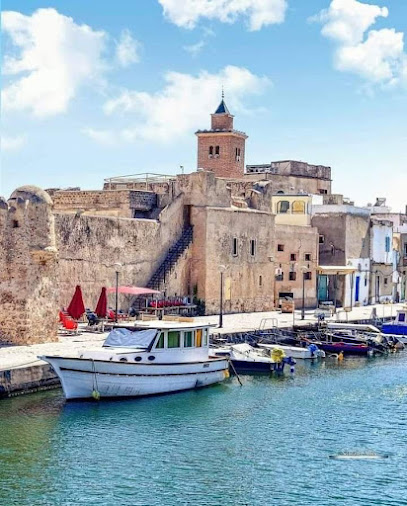
Fort d'Espagne
Discover the majestic Fort d'Espagne in Bizerte, Tunisia, where history meets stunning Mediterranean views and rich cultural heritage.
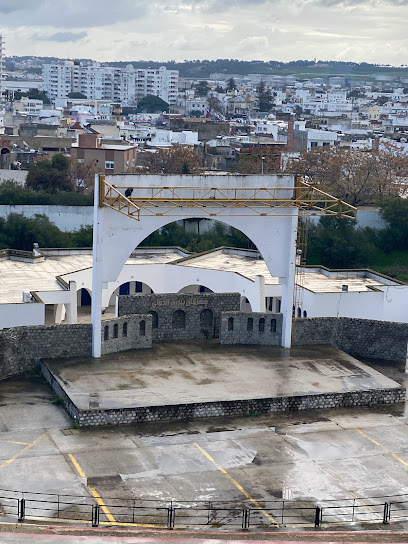
Rebaa Mosque
Discover the architectural beauty and spiritual significance of Rebaa Mosque, a historic gem in Bizerte that reflects Tunisia's rich Islamic culture.
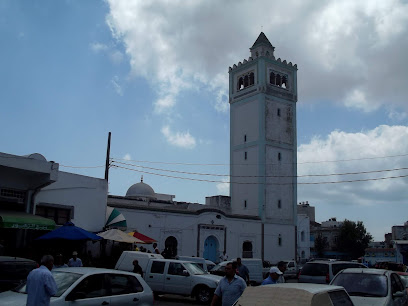
Unmissable attractions to see
Cap Angela
Experience the breathtaking beauty of Cap Angela, a serene coastal gem in Tunisia, perfect for relaxation and outdoor adventures.
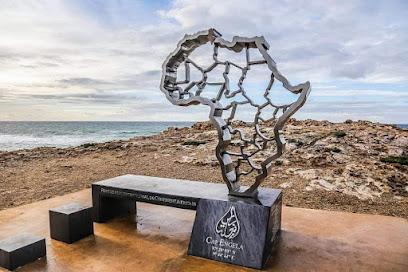
Cap Angela
Discover Cap Angela, Tunisia's hidden historical landmark, where stunning coastal views meet rich cultural heritage in a serene setting.
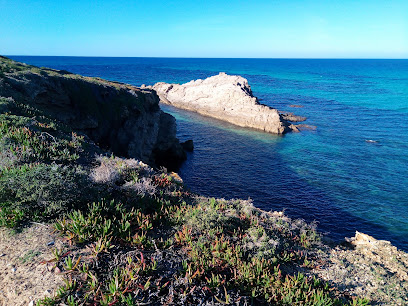
Vieux Port De Bizerte
Explore Vieux Port De Bizerte, a charming marina offering rich history, stunning views, and a taste of authentic Tunisian culture.
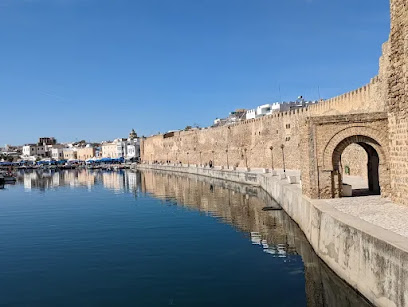
Parc Aladin
Experience family fun at Parc Aladin in Bizerte, where thrilling rides and delicious dining await visitors of all ages.
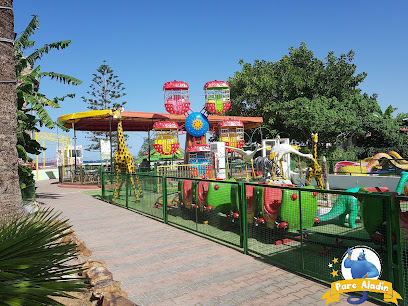
La Grotte
Experience coastal bliss at La Grotte, a serene beach pavilion in Cap Blanc, Tunisia, where sun, sand, and stunning sea views await.
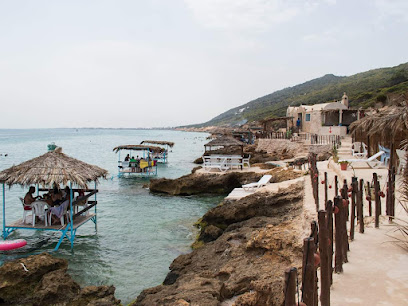
Vieux Port
Discover the enchanting Vieux Port in Bizerte, Tunisia - a historic harbor with stunning views, vibrant markets, and delightful local cuisine.
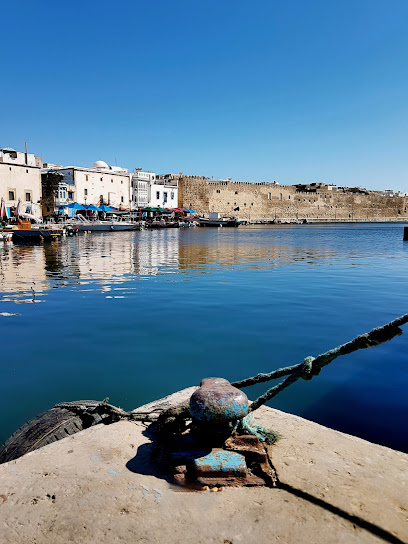
Rimel Beach Menzel Jemil
Experience the beauty and tranquility of Rimel Beach Menzel Jemil, where sun, sand, and sea create unforgettable memories on the Tunisian coast.
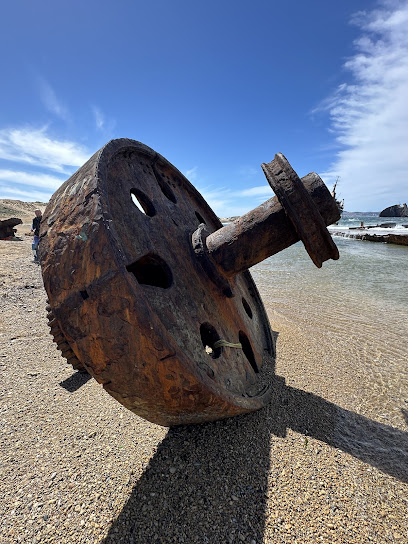
The Archaeological Site of Utica
Explore the Archaeological Site of Utica, a captivating journey through Tunisia's rich ancient history and stunning Mediterranean views.
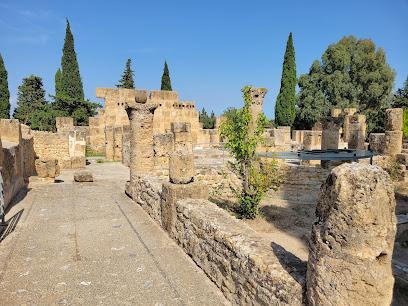
منتزه الريف Montazeh Errif
Experience the thrill of Montazeh Errif, a premier amusement park in Nadhour, Tunisia, perfect for family fun and unforgettable memories.
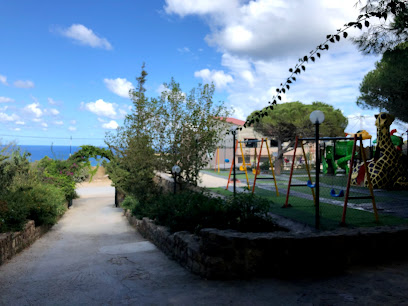
Corniche of Bizerte
Explore the stunning Corniche of Bizerte, a picturesque waterfront promenade offering breathtaking views, vibrant culture, and culinary delights.
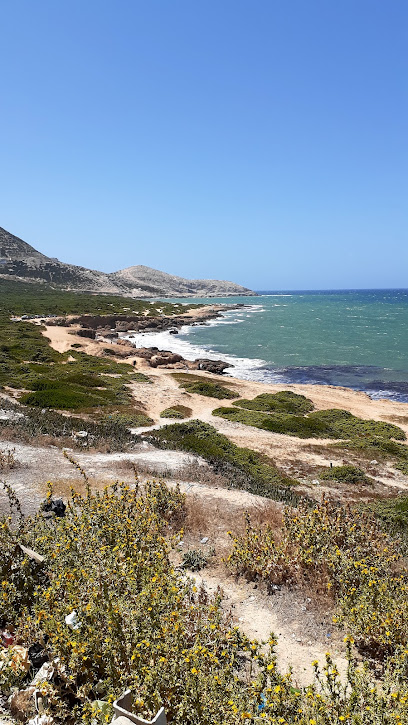
Cap Blanc
Explore the stunning cliffs and serene waters of Cap Blanc, Tunisia's coastal gem, where adventure and tranquility await every visitor.
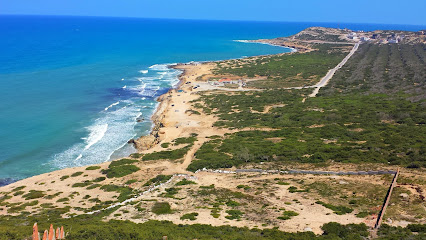
Oceanographic Museum
Discover marine wonders at Bizerte's Oceanographic Museum, where science and beauty unite in captivating exhibits and outdoor displays.
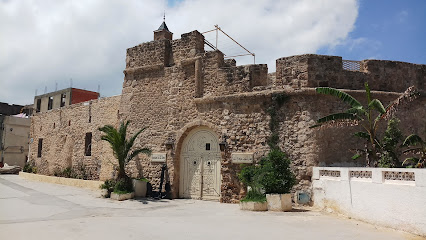
Aïn Mazer El-Chanana Waterfall
Explore Aïn Mazer El-Chanana Waterfall, a breathtaking natural wonder in Tunisia, perfect for adventure seekers and nature lovers.
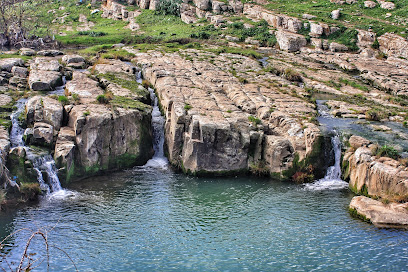
Medina of Bizerte
Discover the Medina of Bizerte: a historical landmark filled with rich culture, stunning architecture, and vibrant markets along the beautiful Mediterranean coast.
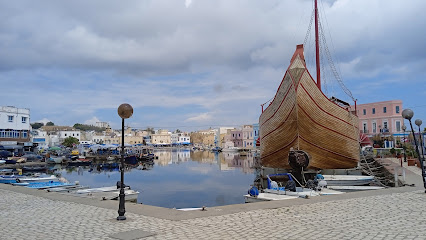
Rafraf Beach
Discover Rafraf Beach, where pristine sands meet crystal-clear waters, perfect for relaxation and adventure under the Tunisian sun.
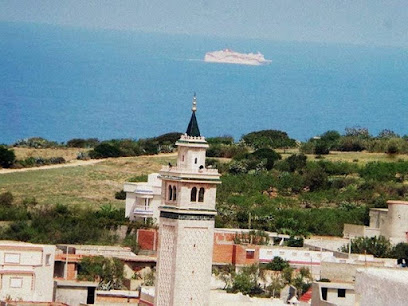
Essential places to dine
Best Voice
Experience the flavors of haute French cuisine at Best Voice in Bizerte - a top choice for breakfast and brunch lovers.
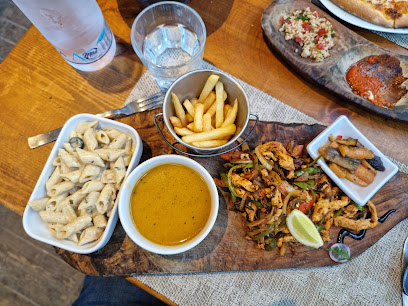
Marine Club Restaurant
Experience exquisite seafood dining at Marine Club Restaurant in Bizerte - where fresh flavors meet breathtaking Mediterranean views.
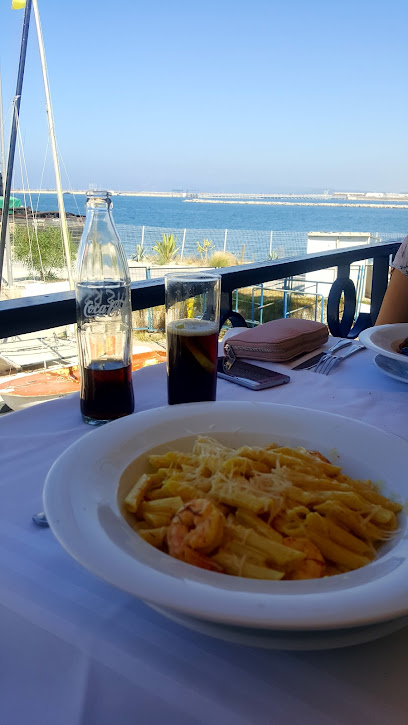
Restaurant Le Phénicien
Experience authentic Mediterranean flavors at Restaurant Le Phénicien in Bizerte's scenic Vieux Port.
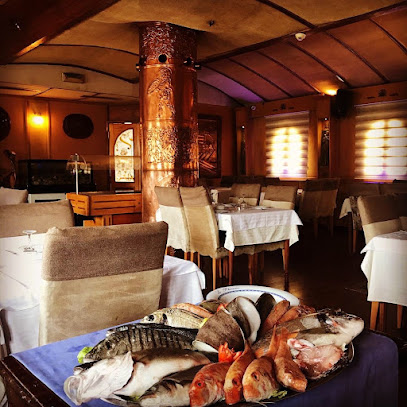
Crockin
Experience authentic Tunisian cuisine at Crockin, a charming restaurant and tea house along Bizerte's stunning Corniche.
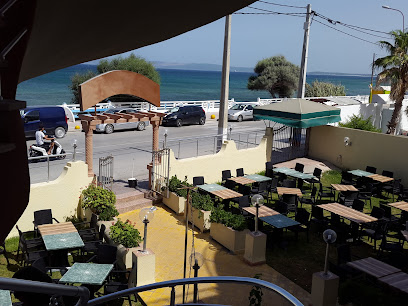
Bedouin
Discover authentic Tunisian cuisine and delightful pastries at Bedouin in beautiful Bizerte.
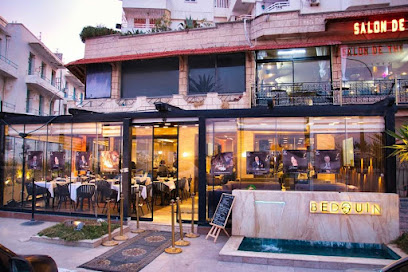
Restaurant EL KSIBA
Experience authentic Tunisian cuisine at Restaurant EL KSIBA in Bizerte's charming Vieux Port la Ksiba, where local flavors meet stunning coastal views.
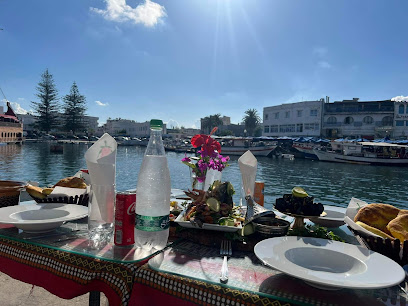
Piccolino
Experience the rich flavors of Mediterranean cuisine at Piccolino in Gabès – where every meal tells a story.
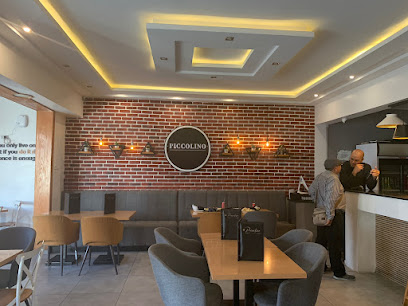
Le Grand Bleu Da Ciccio
Experience authentic Italian cuisine at Le Grand Bleu Da Ciccio in Bizerte - where every meal is a celebration of flavors.
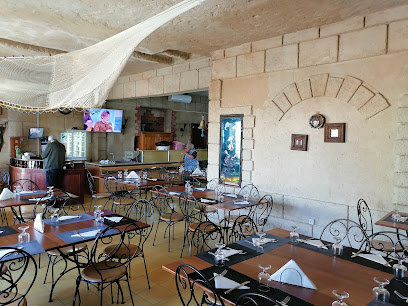
Restaurant lounge le Quai Bizerte
Experience the best of Tunisian cuisine at Lounge Le Quai Bizerte with stunning marina views and an inviting atmosphere.
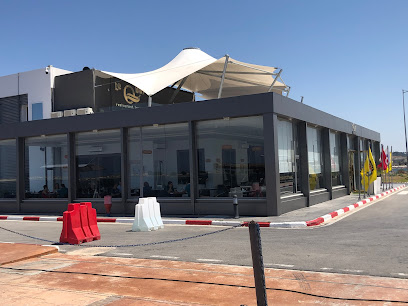
Di Napoli Corniche
Discover authentic Italian flavors at Di Napoli Corniche in Bizerte – where every slice tells a story against stunning Mediterranean views.
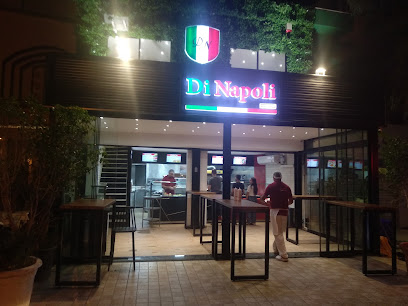
Restaurant LA FORET BLEUE
Discover authentic Tunisian cuisine at Restaurant LA FORET BLEUE in Cap Blanc - a culinary delight with local charm.
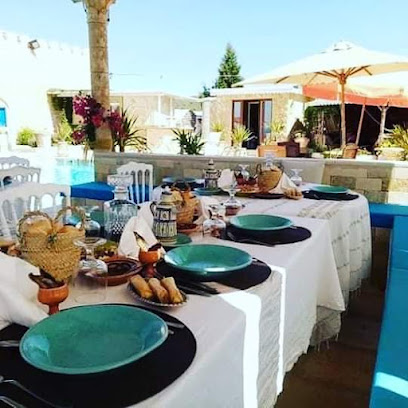
LA PLAYA
Experience the vibrant flavors of Tunisia at La Playa, where local cuisine meets warm hospitality in beautiful Bizerte.
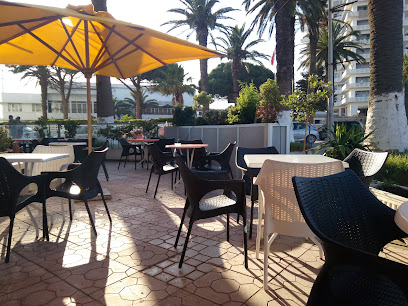
Lablebi JABERI(Retila)
Savor the essence of Tunisia at Lablebi JABERI (Retila) – a culinary gem in Bizerte known for its authentic dishes and warm hospitality.
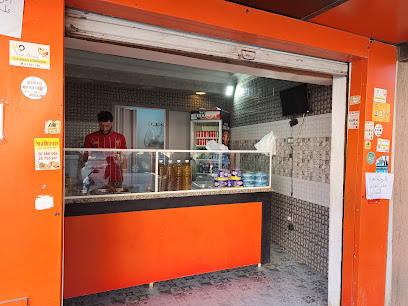
HIPPO LAND
Experience family-friendly dining and playful adventures at Hippo Land in Bizerte – where fun meets flavor!
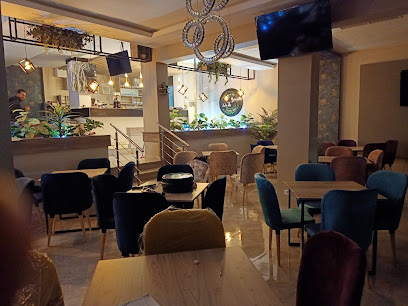
Restaurant Les Grottes
Experience authentic Tunisian flavors at Restaurant Les Grottes in Bizerte – where tradition meets taste.
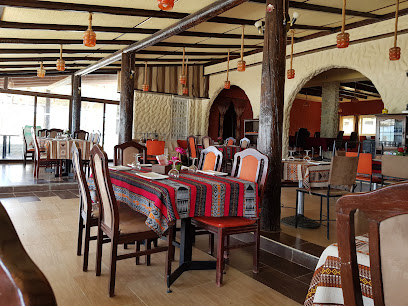
Markets, malls and hidden boutiques
Bizerte Store
Discover the best computer store in Bizerte, offering a wide range of tech products and expert assistance to enhance your travel experience.
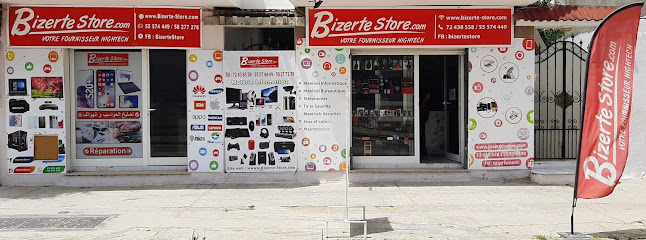
DADA Koncept
Explore the vibrant fashion culture of Bizerte at DADA Koncept, where local artistry meets modern style in a charming shopping experience.
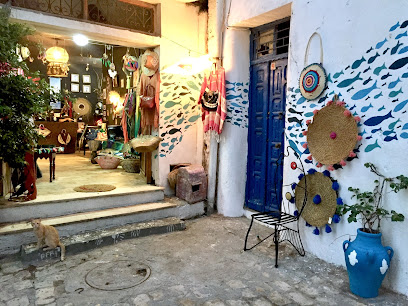
VOG
Discover stylish women's clothing at VOG in Bizerte, where local flair meets modern fashion trends for every occasion.
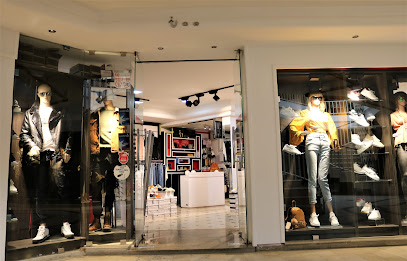
SI store
Explore the SI Store in Bizerte for unique handcrafted gifts, traditional decor, and authentic Tunisian souvenirs that capture the spirit of the region.
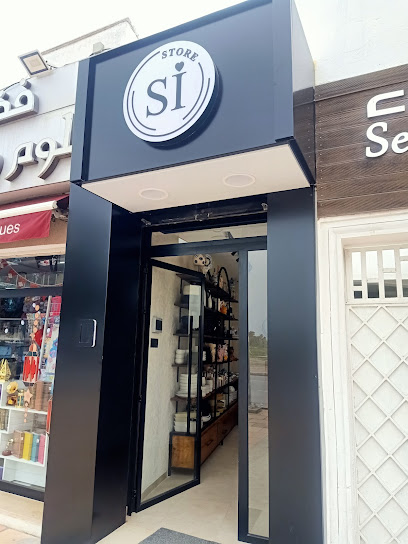
HA Bizerte
Immerse yourself in the vibrant fashion scene of Bizerte at HA Bizerte, where local culture meets contemporary style.
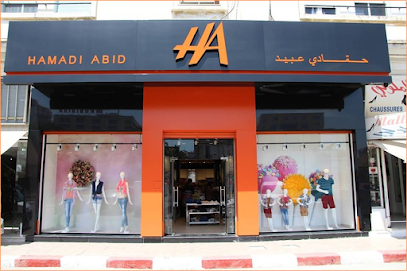
sofa accessoires
Explore Bizerte's charming gift shop, where unique Tunisian souvenirs and handcrafted treasures await every traveler.
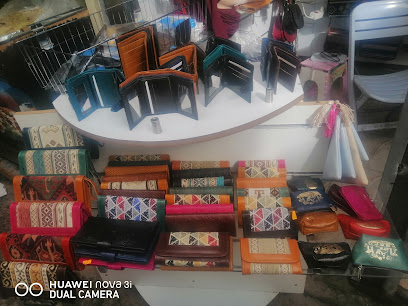
MARQUALUXE
Explore MARQUALUXE in Bizerte for unique gifts and authentic Tunisian crafts that tell a story and support local artisans.
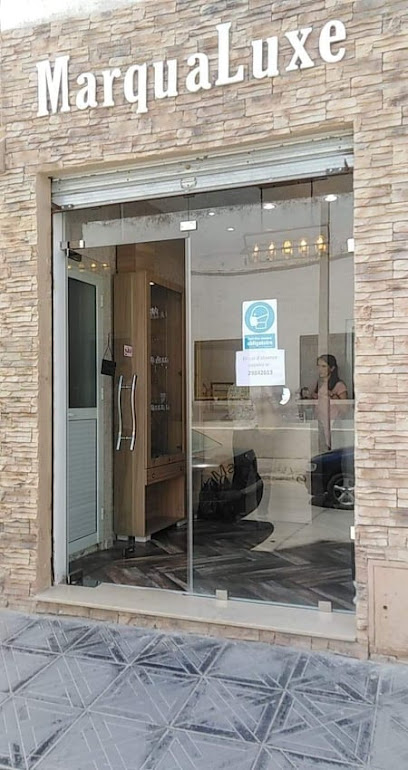
Gloricia
Explore Gloricia in Bizerte for a unique selection of fashionable Tunisian clothing and a delightful shopping experience.
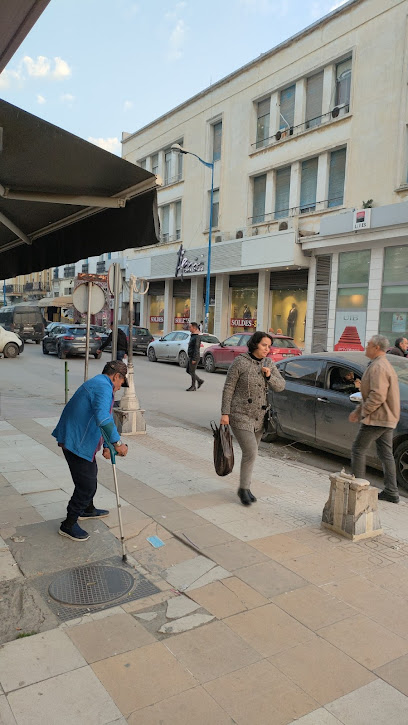
SURPRISE
Discover unique artisanal gifts and souvenirs that embody the rich culture of Tunisia at Surprise in Bizerte.
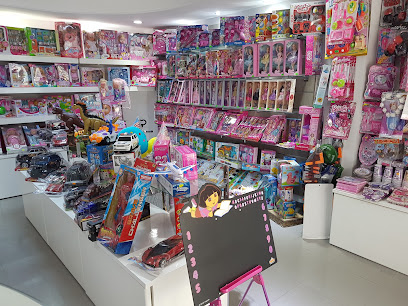
LCWAIKIKI Bizerte
Explore stylish clothing and accessories at LCWAIKIKI Bizerte, where fashion meets affordability in Tunisia's vibrant shopping scene.
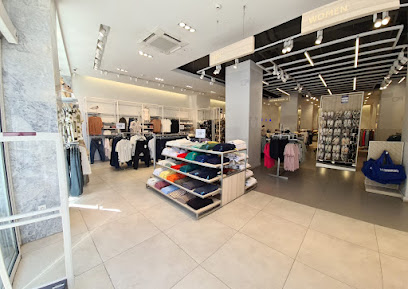
perfection du nord
Experience the essence of Tunisian craftsmanship at Perfection du Nord in Bizerte, where local artistry meets vibrant culture.

Boutique artistiqua
Discover local craftsmanship and vibrant artistry at Boutique Artistiqua in Bizerte, Tunisia, a must-visit for unique souvenirs and cultural treasures.
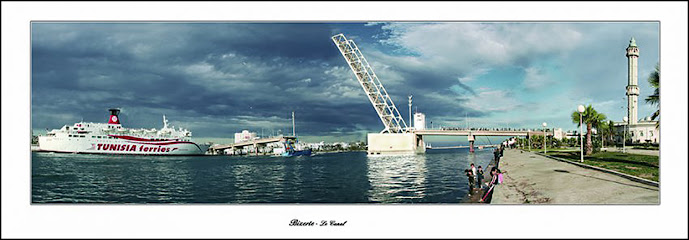
Daisy store
Discover the allure of scents at Daisy Store, a premier perfume destination in Bizerte, Tunisia, offering a unique blend of tradition and modern fragrances.
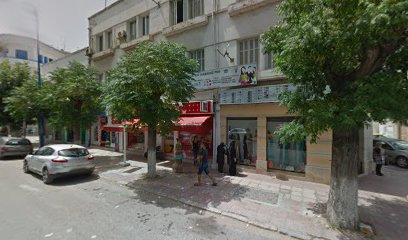
Rafraf
Explore Rafraf, a charming gift shop in Bizerte, where local crafts and unique treasures await every traveler seeking a piece of Tunisia.
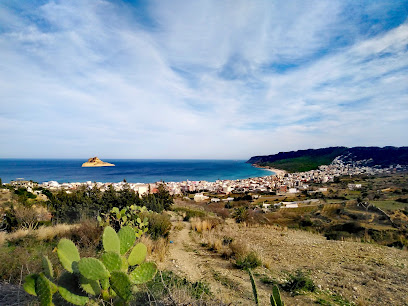
Sasio & Blue Island Bizerte
Explore unique fashion pieces and local styles at Sasio & Blue Island Bizerte, an essential stop for fashion lovers in Tunisia.

Essential bars & hidden hideouts
Best Voice
Experience the charm of Bizerte with delightful breakfasts and brunches at Best Voice, a must-visit cafe for every traveler.
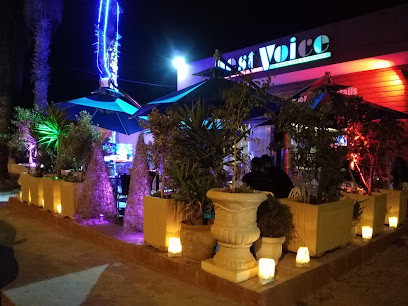
Marine Club Restaurant
Discover the flavors of Tunisia at Marine Club Restaurant, where exquisite seafood meets breathtaking Mediterranean views in Bizerte.
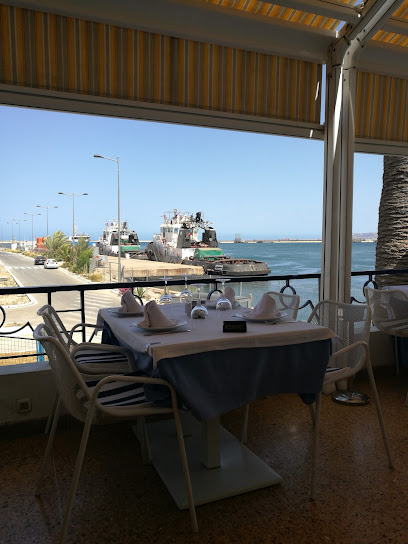
Restaurant Le Phénicien
Experience the authentic flavors of Tunisian cuisine at Restaurant Le Phénicien, overlooking the charming Vieux Port in Bizerte.
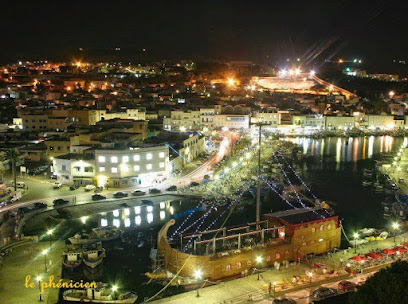
Bedouin
Experience the culinary artistry of Bedouin in Bizerte, where exquisite flavors and traditional Tunisian dishes come alive in a warm ambiance.
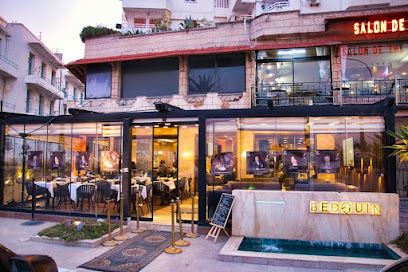
Restaurant EL KSIBA
Experience the rich flavors of Tunisia at Restaurant EL KSIBA, a must-visit culinary gem in Bizerte's picturesque old port.
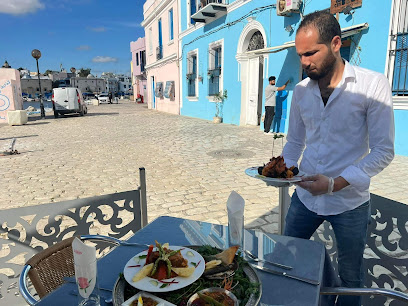
Le Grand Bleu Da Ciccio
Experience authentic Italian cuisine at Le Grand Bleu Da Ciccio, where every dish is a celebration of flavor and tradition in the heart of Bizerte.
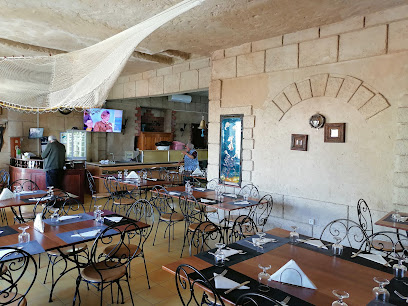
Restaurant lounge le Quai Bizerte
Experience the best of Tunisian cuisine at Lounge le Quai Bizerte, where stunning marina views meet delectable local flavors.
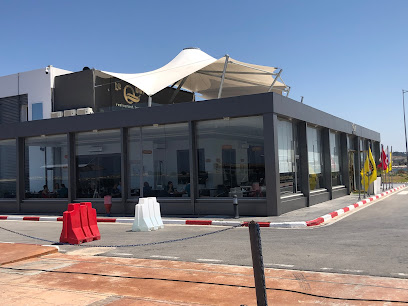
LA PLAYA
Discover the flavors of the Mediterranean at La Playa, a charming restaurant in Bizerte serving fresh seafood and traditional Tunisian dishes with stunning sea views.
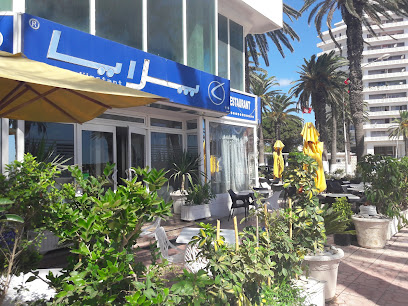
Espace Golden Lounge
Experience modern dining at Espace Golden Lounge, where exquisite cuisine meets a vibrant atmosphere in the heart of Menzel Abderrahmane.
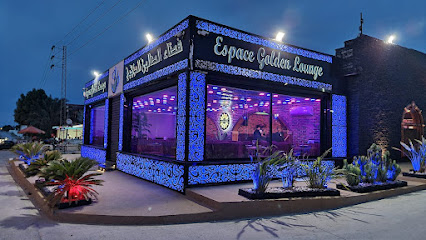
Restaurant Joba
Experience the authentic taste of Tunisia at Restaurant Joba in Bizerte, where culinary tradition meets vibrant atmosphere.
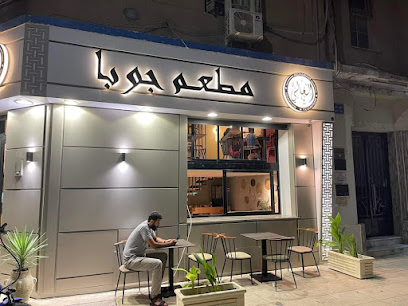
Eddrina
Discover Eddrina in Bizerte's Vieux Port, where local flavors and stunning harbor views create an unforgettable dining experience.
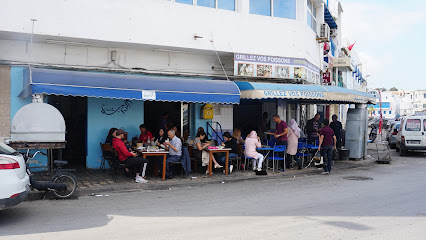
Jumanji Juice Bar
Discover the vibrant flavors of Tunisia at Jumanji Juice Bar in Bizerte, where fresh juices and a tropical ambiance await every traveler.
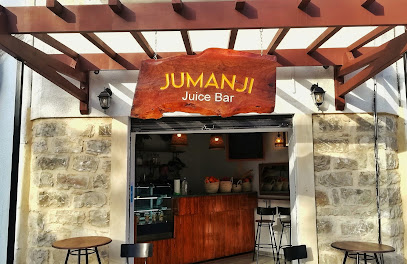
Juice Box
Discover the vibrant flavors of Juice Box in Bizerte, blending refreshing cocktails, juices, and sandwiches in a lively atmosphere.
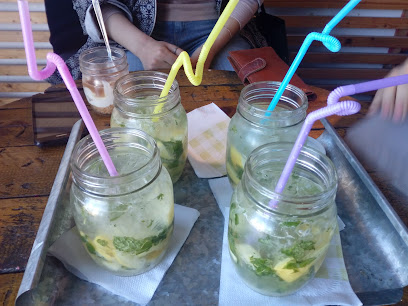
Jumanji juice bar
Discover the vibrant flavors of Bizerte at Jumanji Juice Bar, where health meets taste in a refreshing oasis.
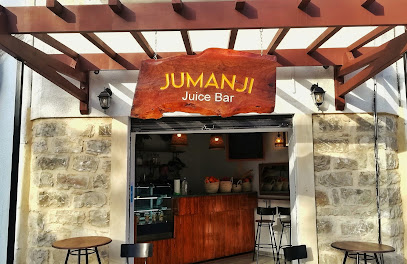
Local Phrases
-
- Helloالسلام عليكم
[assalamu alaykum] - Goodbyeوداعا
[wada'an] - Yesنعم
[na'am] - Noلا
[la] - Please/You're welcomeمن فضلك/على الرحب و السعة
[min fadlik/ala alrahb wasa'ah] - Thank youشكرا
[shukran] - Excuse me/Sorryعذرا
[udhran] - How are you?كيف حالك؟
[kayfa haluk?] - Fine. And you?بخير. و أنت؟
[bi khayr. wa ant?] - Do you speak English?هل تتكلم الإنجليزية؟
[hal tatakallam al'injlizia?] - I don't understandلا أفهم
[la afham]
- Helloالسلام عليكم
-
- I'd like to see the menu, pleaseأريد أن أرى القائمة، من فضلك
[uriidu 'an 'ara alqaimah, min fadlik] - I don't eat meatأنا لا آكل اللحم
[ana la aakulu allahm] - Cheers!في صحتك!
[fi sahtik!] - I would like to pay, pleaseأود أن أدفع، من فضلك
[awadu 'an 'udfi', min fadlik]
- I'd like to see the menu, pleaseأريد أن أرى القائمة، من فضلك
-
- Help!النجدة!
[an najdah!] - Go away!انصرف!
[insiraf!] - Call the Police!اتصل بالشرطة!
[atasil bialshurta!] - Call a doctor!اتصل بالطبيب!
[atasil bialtabib!] - I'm lostلقد ضللت الطريق
[laday dallalt altariq] - I'm illأنا مريض
[ana mareed]
- Help!النجدة!
-
- I'd like to buy...أريد أن أشتري...
[uriidu 'an 'ashtari...] - I'm just lookingأنا فقط أتطلع
[ana faqat atatalla'] - How much is it?كم هو ثمنه؟
[kam huwa thamanuh?] - That's too expensiveهذا غالي جدا
[hatha ghali jidan] - Can you lower the price?هل يمكنك خفض السعر؟
[hal yumkinuka khafd alsu'ur?]
- I'd like to buy...أريد أن أشتري...
-
- What time is it?كم الساعة؟
[kam alsaeat?] - It's one o'clockالساعة الواحدة
[alsaeat alwahidah] - Half past (10)العاشرة و النصف
[al'asharah wanisf] - Morningالصباح
[alsabah] - Afternoonالظهر
[adhuhur] - Eveningالمساء
[almasa'] - Yesterdayأمس
[ams] - Todayاليوم
[alyawm] - Tomorrowغدا
[ghadan] - 1واحد
[wahid] - 2اثنان
[ithnan] - 3ثلاثة
[thalathah] - 4أربعة
[arba'ah] - 5خمسة
[khamsah] - 6ستة
[sittah] - 7سبعة
[sab'ah] - 8ثمانية
[thamaniah] - 9تسعة
[tis'ah] - 10عشرة
['asharah]
- What time is it?كم الساعة؟
-
- Where's a/the...?أين هو/هي...؟
[ayn huwa/hy...?] - What's the address?ما هو العنوان؟
[ma huwa al'awn?] - Can you show me (on the map)?هل يمكنك أن تريني (على الخريطة)؟
[hal yumkinuka an tarini (ala alkharitah)?] - When's the next (bus)?متى يأتي الحافلة التالية؟
[mata ya'ti alhafilat altaliat?] - A ticket (to ....)تذكرة (إلى ....)
[tadhkirat ('iilaa ....)]
- Where's a/the...?أين هو/هي...؟
History of Bizerte
-
Bizerte, originally known as Hippo Diarrhytus, was founded by the Phoenicians in the 9th century BCE. It served as an important maritime hub due to its strategic location on the Mediterranean coast. The city's early prosperity was driven by its role in trade and communication across the Mediterranean basin.
-
In 146 BCE, Bizerte fell under Roman control after the Third Punic War. The Romans renamed the city to Hippo Diarrhytus and developed it further, constructing roads, aqueducts, and public buildings. The city became a vital part of the Roman province of Africa Proconsularis.
-
After the fall of the Western Roman Empire, Bizerte came under Byzantine rule in the 6th century CE. The Byzantines fortified the city, recognizing its strategic importance for controlling the Mediterranean Sea. Bizerte remained a key defensive outpost against the expanding Arab forces.
-
In the 7th century, Arab forces conquered Bizerte, integrating it into the rapidly expanding Islamic Caliphate. The city was renamed Banzart and became an important naval base and commercial center in the region. The Islamic influence introduced new architectural styles and cultural practices that continue to shape the city.
-
In the 16th century, Bizerte became part of the Ottoman Empire. The Ottomans fortified the city further and used it as a naval base to control the western Mediterranean. The city's strategic importance grew, and it attracted various European powers' attention, leading to several conflicts and skirmishes.
-
In 1881, Bizerte became part of the French Protectorate of Tunisia. The French developed the city's infrastructure, including the construction of the Bizerte Canal, which linked the Mediterranean Sea to Lake Bizerte, significantly enhancing the city's maritime capabilities. Bizerte served as a crucial naval base during both World Wars.
-
The Bizerte Crisis occurred in 1961, a pivotal event in Tunisian history. Following Tunisia's independence from France in 1956, French forces remained in Bizerte. Tensions escalated, leading to a violent confrontation between Tunisian and French troops. The crisis resulted in significant casualties and ultimately led to the withdrawal of French forces from Bizerte.
-
Today, Bizerte is a vibrant city that reflects its rich historical tapestry. The city's architecture, including the Kasbah and the Old Port, showcases a blend of Phoenician, Roman, Byzantine, Arab, Ottoman, and French influences. Bizerte's cultural heritage is celebrated through various festivals, museums, and historical sites, making it a fascinating destination for history enthusiasts.
Bizerte Essentials
-
Bizerte is located in northern Tunisia, approximately 65 kilometers from Tunis, the capital. The nearest international airport is Tunis-Carthage International Airport (TUN). From the airport, you can take a taxi, hire a private car, or use public transportation to reach Bizerte. The journey by taxi or car typically takes around one hour. Alternatively, you can take a train from Tunis to Bizerte, which offers a scenic route through the Tunisian countryside.
-
Bizerte is a relatively small city, and many of its attractions are within walking distance. For longer trips, taxis are readily available and affordable. Public buses and minibuses (louages) operate within the city and connect to nearby towns and villages. Renting a car is also an option for those who wish to explore the surrounding areas at their own pace.
-
The official currency in Tunisia is the Tunisian Dinar (TND). Credit cards are accepted in most hotels, restaurants, and larger shops, but it is advisable to carry some cash, especially for small purchases and in local markets. ATMs are widely available in Bizerte, so withdrawing cash should not be an issue.
-
Bizerte is generally a safe destination for tourists. However, it is always wise to take standard precautions. Avoid walking alone at night in unfamiliar areas, and keep an eye on your belongings in crowded places. While there are no specific high-crime areas targeting tourists, it is best to stay vigilant and be aware of your surroundings.
-
In case of emergency, dial 197 for police assistance or 190 for medical emergencies. The local police station and medical facilities are available in Bizerte. It is recommended to have travel insurance that covers medical emergencies. Pharmacies are also available in the city where you can purchase over-the-counter medications.
-
Fashion: Do dress modestly, especially when visiting religious sites. Avoid wearing revealing clothing. Religion: Do respect local customs and traditions. Always cover your head when entering mosques. Public Transport: Do be respectful and give up your seat to elderly passengers. Don't eat or drink on public transport. Greetings: Do greet people with a handshake. In some cases, a slight bow of the head is also a sign of respect. Eating & Drinking: Do try local delicacies and accept food offerings graciously. Don't refuse hospitality, as it is considered impolite.
-
To experience Bizerte like a local, visit the local markets where you can buy fresh produce and traditional Tunisian goods. Engage with locals, as they are often friendly and willing to share stories about the city's history and culture. Don't miss visiting the Bizerte Medina, the Kasbah, and the Old Port for a taste of the city's rich history. For a unique experience, take a walk along the Corniche, where you can enjoy stunning views of the Mediterranean Sea.
Trending Landmark in Bizerte
-
Cap Angela: Northern Tip Of Africa
-
Vieux Port De Bizerte
-
ملاهي علاء الدين
-
Vieux Port
-
Di Napoli Corniche
-
Open-air theater in Bizerte
-
Oceanographic Museum
-
Remel Beach
-
Medina of Bizerte
-
Russian Ultra-Orthodox Church
-
Bizerte Old Harbor
-
Aljezia Hammam & SPA (Ayadi)
-
Dar El Kasba Bizerte
-
Fort d'Espagne
-
Rebaa Mosque
Nearby Cities to Bizerte
-
Things To Do in Tunis
-
Things To Do in Hammamet
-
Things To Do in Sousse
-
Things To Do in Monastir
-
Things To Do in Annaba
-
Things To Do in Sfax
-
Things To Do in Constantine
-
Things To Do in Palermo
-
Things To Do in Djerba
-
Things To Do in Tozeur
-
Things To Do in Xlendi
-
Things To Do in Marsalforn
-
Things To Do in Gozo
-
Things To Do in Setif
-
Things To Do in Xaghra









